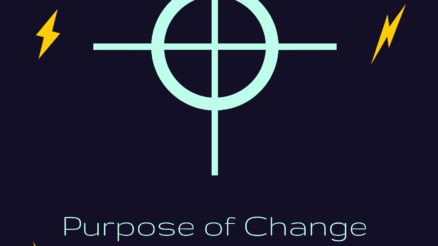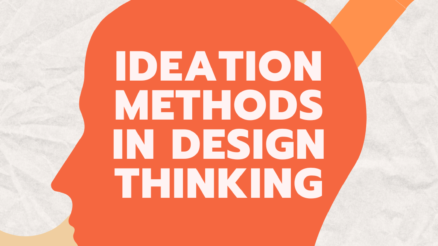Have you ever found yourself stuck in an unwanted situation and just needed to start a fresh or a new chapter in your life?
The desire to reinvent ourselves is a universal journey, and the quest for the best way to reinvent yourself is a pursuit many embark upon at different stages of life.
Whether it’s spurred by a sense of stagnation, a career crossroads, or a deep yearning for personal growth, the path to reinvention is as unique as each individual.
In this blog post, we will explore the keys to unlocking your potential, discovering the best way to reinvent yourself, and navigating the transformative journey towards becoming the person you aspire to be.
So, are you ready to embrace change, step into the unknown, and embark on a remarkable journey of self-discovery and reinvention?
What is Personal Reinvention?
Personal reinvention refers to the intentional and transformative process of making significant changes to one’s identity, lifestyle, beliefs, habits, or pursuits.
It involves a conscious effort to break away from established patterns and embrace new ways of thinking, behaving, and living.
This concept goes beyond mere adaptation or development; it implies a radical shift in various aspects of one’s life, often driven by a desire for self-improvement, personal growth, or a need to align one’s life with evolving aspirations.
Understanding the need for reinvention
Recognizing the need for reinvention is a crucial first step on the path to personal transformation.
It involves a deep and honest evaluation of one’s current circumstances, emotions, and overall satisfaction with life.
Several indicators may signal the need for reinvention:
- Stagnation or Unfulfillment: Feeling stuck in a rut, uninspired, or unfulfilled in various aspects of life, such as career, relationships, or personal pursuits, may suggest a need for change.
- Life Transitions: Major life events, such as job loss, a significant birthday, or changes in personal relationships, can prompt a reassessment of one’s goals and values, often leading to a desire for reinvention.
- Inconsistency with Values: A misalignment between personal values and current actions or circumstances may create a sense of inner conflict, prompting the realization that a shift is needed to live authentically.
- Longing for Growth: A deep yearning for personal and professional growth, coupled with a sense that current circumstances are hindering such development, can be a powerful motivator for reinvention.
- External Pressures: Societal expectations, cultural shifts, or changes in the economic landscape may create external pressures that necessitate adapting to new realities, pushing individuals to consider reinvention.
- Boredom or Lack of Passion: A pervasive feeling of boredom, a lack of enthusiasm for daily activities, or the absence of passion in one’s pursuits may indicate a need for injecting novelty and purpose into life.
Reinvention Process – Step-by-Step
Reinvetion requires self-reflection, courage, and a willingness to step out of one’s comfort zone in pursuit of a more authentic and fulfilling existence.
Reinvention is not a magic happens all at once. It involves various steps that is surely the best way to reinvent yourself.
Self-Reflection
Self-reflection begins with a comprehensive assessment of one’s current strengths and weaknesses.
This introspective process involves a candid examination of skills, talents, and areas in need of improvement.
By acknowledging strengths, individuals can leverage these assets to fuel personal and professional growth.
Simultaneously, identifying weaknesses provides an opportunity for targeted self-improvement efforts.
This assessment is not just limited to professional capabilities but extends to personal qualities such as resilience, adaptability, and emotional intelligence.
Identifying Core Values and Passions
Understanding what truly matters on a fundamental level helps individuals align their actions and goals with their authentic selves.
It involves questioning personal beliefs, assessing what brings genuine fulfillment, and recognizing the activities that ignite passion.
Embracing a Growth Mindset
Coined by psychologist Carol Dweck, a growth mindset is the belief that intelligence, abilities, and talents can be developed through dedication, hard work, and learning.
Individuals with a growth mindset see challenges as opportunities for growth rather than insurmountable obstacles.
They understand that their abilities are not fixed, but rather malleable, and that effort is the pathway to mastery.
Cultivating a growth mindset involves fostering a love for learning, valuing resilience in the face of setbacks, and viewing failures as stepping stones toward improvement.
Overcoming Limiting Beliefs
To fully embrace a growth mindset, it is essential to identify and overcome limiting beliefs that may hinder progress.
Limiting beliefs are negative thoughts and assumptions about one’s abilities and potential for growth.
Individuals with a fixed mindset often succumb to the belief that their skills and intelligence are static, leading to a fear of failure and reluctance to take on challenges.
Overcoming these limiting beliefs involves challenging negative self-talk, reframing setbacks as opportunities for learning, and cultivating self-compassion.
By acknowledging that mistakes are a natural part of the learning process and that abilities can be developed over time, individuals can break free from the constraints of limiting beliefs and open themselves to a world of possibilities for personal and professional advancement.
Goal Setting and Planning
Specific goals provide clarity by clearly defining what is to be achieved, leaving no room for ambiguity.
Measurable goals allow progress to be tracked objectively, ensuring that there are tangible indicators of success.
Achievable goals are realistic and feasible, considering one’s resources and capabilities.
Relevant goals align with broader objectives and personal values, ensuring that efforts are meaningful and purposeful.
Finally, Time-Bound goals are set within a defined timeframe, creating a sense of urgency and commitment.
Breaking Down Larger Goals into Manageable Steps
Breaking down larger goals into manageable steps is a key strategy for making progress and preventing overwhelming feelings.
Complex or ambitious objectives can be intimidating, leading to procrastination or a sense of being stuck.
To counteract this, individuals should deconstruct larger goals into smaller, more achievable tasks.
Each smaller task becomes a manageable step that, when completed, contributes to the overall progress toward the larger goal.
This approach not only facilitates a sense of accomplishment as each step is achieved but also provides a clear roadmap for the journey ahead.
Creating a Realistic Timeline for Achieving Goals
Timeframes provide structure, accountability, and a sense of urgency, preventing goals from becoming open-ended and indefinite.
Individuals should carefully assess the complexity and scope of their goals, considering external factors and potential obstacles, to set a timeline that strikes a balance between ambition and achievability.
A realistic timeline not only helps in pacing efforts appropriately but also serves as a motivational tool, providing a sense of purpose and deadlines to work towards.
Identifying Relevant Skills for Reinvention
Identifying relevant skills requires a keen understanding of industry trends, job requirements, and personal aspirations.
Individuals should consider both “hard” skills specific to their profession and “soft” skills such as communication, leadership, and adaptability.
This intentional selection of skills forms the foundation for a strategic and purposeful approach to skill development, ensuring that efforts are directed toward areas that will have a meaningful impact on overall growth.
Exploring Learning Opportunities (Courses, Workshops, Online Resources)
The modern landscape of education offers a plethora of options, from formal academic courses to online platforms, making learning accessible and flexible.
Continuous exploration of these opportunities not only keeps individuals abreast of the latest developments in their field but also allows them to acquire practical, up-to-date knowledge and hands-on experience.
Embracing a proactive and curious mindset is crucial during this phase, as it opens doors to a wealth of resources that can contribute to skill enhancement.
Seeking Mentorship and Guidance
Mentors, with their wealth of experience, can provide insights, advice, and personalized feedback that accelerates the learning curve.
A mentor can offer practical guidance on navigating challenges, share industry-specific knowledge, and help individuals refine their skills in a real-world context.
Additionally, mentorship fosters a supportive network, connecting individuals with like-minded professionals who can provide inspiration and encouragement.
Whether formal or informal, mentorship plays a pivotal role in not only acquiring new skills but also in understanding the nuances of applying these skills effectively in various situations, contributing to holistic personal and professional development.
Surrounding Oneself with Positive and Supportive Individuals
Building a robust support system begins with intentionally surrounding oneself with positive and supportive individuals.
These individuals contribute significantly to one’s emotional well-being and resilience during times of change and reinvention.
Positivity is contagious, and a supportive network provides encouragement, affirmation, and a sense of belonging. Whether friends, family, or colleagues, those who offer encouragement and constructive feedback can be invaluable allies on the journey of personal transformation.
Creating a circle of positive influences helps create an environment where challenges are viewed as opportunities, fostering an optimistic mindset that is conducive to sustained personal growth.
Networking and Connecting with Like-Minded People
Networking and connecting with like-minded individuals amplify the support system by providing diverse perspectives, shared experiences, and potential collaboration opportunities.
Engaging with people who share similar goals or interests opens doors to new ideas, insights, and potential partnerships.
Attend networking events, join relevant social groups, and participate in online forums to expand the support system.
The collective wisdom and shared experiences of like-minded individuals can provide valuable guidance, inspiration, and a sense of solidarity during the various stages of personal transformation.
Seeking Mentorship and Advice from Those Who Have Successfully Reinvented Themselves
One of the best way to reinvent yourself is to build a support system during the process of reinvention is by seeking mentorship and advice from individuals who have successfully navigated similar journeys.
Mentors offer not only guidance based on their experiences but also serve as living examples of the possibilities that come with intentional reinvention.
Learning from their successes, setbacks, and lessons learned can provide valuable insights, shortcuts, and a roadmap for one’s own transformation.
A mentor who has successfully reinvented themselves can offer tailored advice, share practical strategies, and provide the emotional support needed to navigate challenges.
Overcoming the Fear of the Unknown
Embracing change requires a fundamental shift in one’s mindset, starting with overcoming the fear of the unknown.
Change often brings uncertainty, and the fear of what lies ahead can be paralyzing.
To embrace change, individuals need to acknowledge this fear and consciously work towards reframing it as an opportunity for growth and discovery.
This involves focusing on the potential positive outcomes, envisioning new possibilities, and recognizing that the unknown holds the potential for learning and transformation.
Navigating Setbacks and Learning from Failures
Change is seldom a linear journey, and setbacks are an inevitable part of the process.
Embracing change involves not only accepting setbacks but also learning from failures as valuable lessons.
Rather than viewing setbacks as insurmountable obstacles, individuals should approach them as opportunities for reflection and improvement.
Analyzing what went wrong, understanding the contributing factors, and extracting lessons from failures are crucial steps in building resilience.
Prioritizing Self-Care to Maintain Mental and Emotional Well-Being
Prioritizing self-care is essential for maintaining optimal mental and emotional well-being during periods of change and reinvention.
This involves recognizing and addressing personal needs, whether they are physical, emotional, or psychological.
Self-care activities may include adequate sleep, regular exercise, healthy nutrition, and engaging in activities that bring joy and relaxation.
During times of change, individuals may experience increased stress, making self-care even more crucial.
Balancing Ambition with Self-Compassion
While ambition is a driving force for personal growth, it is equally important to balance it with self-compassion.
Setting ambitious goals during a period of reinvention is commendable, but individuals must be mindful of their own limitations and the need for self-compassion.
This involves acknowledging and accepting imperfections, learning from mistakes without self-judgment, and treating oneself with the same kindness and understanding extended to others.
Balancing ambition with self-compassion creates a healthier mindset, fostering resilience and preventing burnout.
It allows individuals to navigate challenges with a sense of self-worth and a realistic understanding of their own capacities, contributing to a more sustainable and fulfilling journey of personal reinvention.
Acknowledging and Celebrating Small Victories
Celebrating progress starts with acknowledging and celebrating small victories along the way.
In the pursuit of personal reinvention, every step forward, no matter how modest, is a cause for celebration.
Recognizing and appreciating these small wins not only boosts confidence but also reinforces the positive behaviors and efforts that contribute to overall success.
By breaking down larger goals into manageable tasks and acknowledging achievements at each step, individuals create a positive feedback loop that fosters motivation and a sense of accomplishment.
Reflecting on Personal Growth and Achievements
Reflecting on personal growth and achievements is a crucial aspect of celebrating progress.
Regular self-reflection allows individuals to appreciate the distance they’ve covered, recognize the skills they’ve acquired, and acknowledge the positive changes in mindset and behavior.
This reflective process provides a deeper understanding of the journey, highlighting the significance of the transformation.
Whether through journaling, meditation, or open dialogue with a mentor or support system, taking time to reflect on personal growth fosters a sense of gratitude and pride, reinforcing the motivation to continue on the path of reinvention.
Final Words
The journey of personal reinvention is a dynamic and transformative process that requires a holistic approach for lasting change. By understanding the best way to reinvent yourself, which involves embracing change, setting realistic goals, and cultivating resilience, individuals can unlock their full potential and lead more fulfilling lives. Through self-reflection, the development of new skills, and the establishment of a robust support system, one can navigate the challenges of change with purpose and determination. Celebrating small victories, reflecting on personal growth, and using milestones as motivation all contribute to a continuous cycle of improvement. The best way to reinvent yourself is not a one-size-fits-all formula but a personalized journey guided by self-awareness, adaptability, and a commitment to ongoing development.



